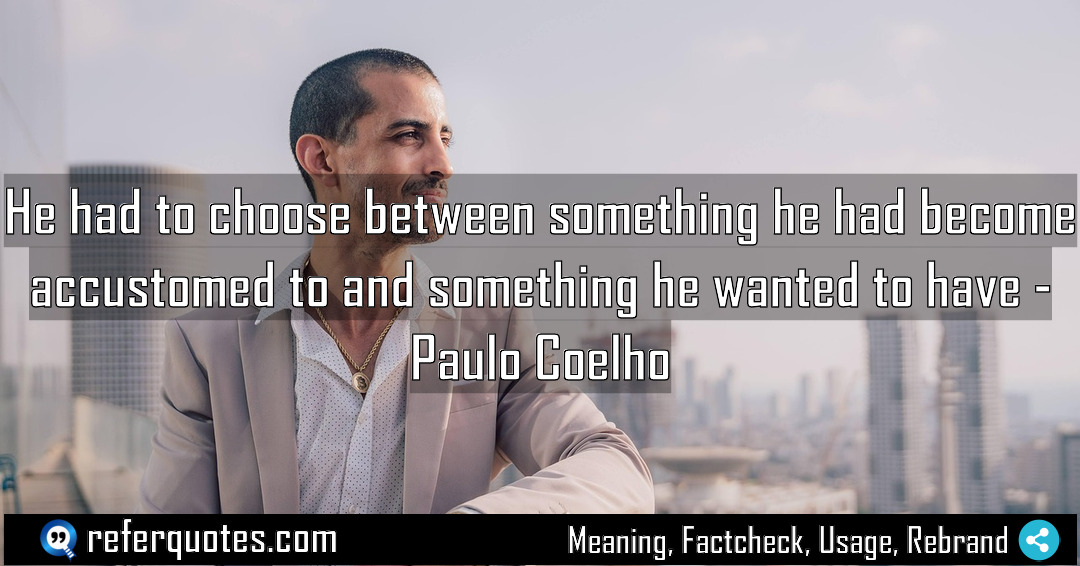He had to choose between something… This is the universal human dilemma between the comfort of the known and the pull of a dream.
Share Image Quote:Table of Contents
Meaning
It’s the fundamental tension between comfortable stagnation and uncertain growth. The safety of what you know versus the risk of what you truly desire.
Explanation
Look, I’ve seen this play out so many times. This isn’t just a choice; it’s the archetypal choice. The “accustomed to” part? That’s the real trap. It’s not about something great, it’s about something familiar. Your brain wires itself to prefer that predictable, low-drama state, even if it’s mediocre. And the “wanted to have”? That’s your Personal Legend, as Coelho calls it. It’s the thing that calls to you but requires you to walk away from the shore, from the flock. The pain isn’t in the wanting—it’s in the choosing to leave what’s already in your hands.
Quote Summary
| Context | Attributes |
|---|---|
| Original Language | Portuguese (369) |
| Category | Career (192) |
| Topics | choice (55) |
| Literary Style | narrative (32) |
| Emotion / Mood | provocative (175), sobering (17) |
| Overall Quote Score | 58 (18) |
Origin & Factcheck
This quote comes straight from Paulo Coelho’s 1988 international bestseller, The Alchemist. It’s a core theme of the book, not a misattributed internet saying. The novel was first published in Brazil (‘O Alquimista’) and has since become one of the best-selling books in history.
Attribution Summary
| Context | Attributes |
|---|---|
| Author | Paulo Coelho (368) |
| Source Type | Book (4032) |
| Source/Book Name | The Alchemist (72) |
| Origin Timeperiod | Contemporary (1615) |
| Original Language | Portuguese (369) |
| Authenticity | Verified (4032) |
Author Bio
Paulo Coelho(1947) is a world acclaimed novelist known for his writings which covers spirituality with underlying human emotion with a profound storytelling. His transformative pilgrimage along the Camino de Santiago inspired his breakthrough book, The Pilgrimage which is soon followed by The Alchemist< which went on to become the best seller. Through mystical narratives and introspective style, Paulo Coelho even today inspires millions of people who are seeking meaning and purpose in their life
Official Website |Facebook | Instagram | YouTube |
Where is this quotation located?
| Quotation | He had to choose between something he had become accustomed to and something he wanted to have |
| Book Details | Publication Year/Date: 1988; ISBN/Unique Identifier: 978-0061122415; Last edition: HarperOne (illustrated edition, 2014); Number of pages: 208. |
| Where is it? | Part One, decision to leave, NeedVerification – Edition 2014, page range ~[44–52] |
